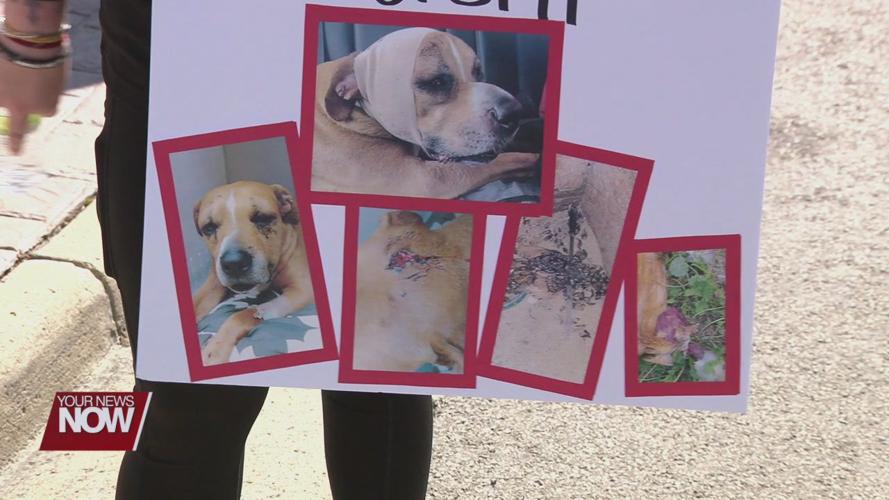Animal cruelty, an abhorrent act that plagues societies across the globe, demands vigilant activism and proactive measures to combat its prevalence. In Akron, Ohio, filing an animal cruelty charge is a crucial step in protecting vulnerable animals and ensuring justice is served. This guide aims to delineate the process, outline the requisite steps, and elucidate various resources available to concerned citizens advocating for animal welfare.
Understanding Animal Cruelty in Ohio
Before embarking on the journey to file a charge, it’s imperative to have an astute understanding of what constitutes animal cruelty under Ohio law. Ohio Revised Code § 959.01 defines animal cruelty broadly, encompassing acts of neglect, abandonment, or intentional harm. From physical abuse to depriving an animal of basic necessities, such cruelty manifests in numerous forms. Recognizing these signs is crucial for any responsible individual seeking to initiate legal action.
Gathering Evidence
The first step in filing an animal cruelty charge is to gather substantial evidence. Documentation plays a pivotal role in substantiating claims. Observations should be meticulously noted, including dates, times, locations, and descriptions of the conditions in which the animal is found. Photographs or video recordings can serve as compelling visual testimony, capturing the severity of an animal’s distress. Witness statements from others who have observed the situation can also lend credence to your case, enhancing its validity.
It is essential that all evidence collected is obtained legally and ethically. Trespassing to gather evidence or doing so in a manner that endangers the animal or yourself can not only compromise your case but also result in legal repercussions for the individual gathering the information.
Identifying the Appropriate Authority
Once evidence has been gathered, the next step involves identifying the appropriate authority to report the suspected cruelty. In Akron, this typically begins with local animal control or law enforcement agencies. The Summit County Animal Control is responsible for investigating claims of animal cruelty. Contacting them directly and providing your compiled evidence is essential.
If local authorities do not respond adequately, residents have the option of reaching out to non-profit organizations focused on animal welfare. Organizations like the Humane Society or ASPCA can provide alternative pathways for filing complaints. These groups often have experience navigating the complexities of animal cruelty cases, and they may offer additional resources or support to bolster your efforts.
Reporting Procedures
Upon establishing contact with the relevant authority, it is crucial to follow their reporting procedures meticulously. This typically involves filling out a formal complaint, which may include providing personal information as well as detailed accounts of the situation in question. It is important to remain as objective as possible in your descriptions, avoiding emotive language that may detract from the facts of the case.
Keep in mind that anonymity may not always be guaranteed. Animal control or local law enforcement may need to contact you for further information. Being prepared for follow-up questions enhances the likelihood of a thorough investigation.
Filing an Official Complaint
With all pertinent information at hand, you will then need to file your formal complaint. In some cases, investigators may require in-person meetings or interviews to discuss the situation in more detail. Depending on the gravity of the allegations and the evidence provided, a report may be generated that outlines the findings of the investigation. Knowing what to expect in this stage can alleviate some apprehension associated with the process.
Should the authorities deem the evidence sufficient to proceed, legal action may ensue. This could range from issuing warnings to the offender to pressing criminal charges. It is important to be patient, as investigations can often take time depending on the complexity of the situation.
Follow-Up and Advocacy
After filing the complaint, maintaining a proactive stance is beneficial. Following up with the authorities about the status of your report ensures that the matter remains on their radar. Documenting any subsequent evidence or continuing observations strengthens your case and serves as a testament to your commitment to animal welfare.
Moreover, consider engaging in advocacy efforts to promote awareness surrounding animal cruelty laws and the significance of reporting violations. Collaborating with local shelters and organizations can foster a larger community of vigilance, wherein citizens remain vigilant against the injustices faced by animals. Hosting or attending community events that spotlight the issue of animal welfare can galvanize public interest and support for stricter enforcement of animal cruelty laws.
Legal Considerations
It is important to recognize that pursuing an animal cruelty charge may involve legal complexities. Consulting with an attorney who specializes in animal law can provide essential insights into the process. They can guide you through any legal nuances and offer assistance if the case escalates to the courtroom. Understanding the potential outcomes and legal implications is fundamental for anyone seeking justice for animals subjected to cruelty.
Conclusion
Filing an animal cruelty charge in Akron, Ohio, is a vital endeavor in protecting those unable to advocate for themselves. By understanding the legal framework, gathering concrete evidence, and persevering through the process, individuals can enact meaningful change. Each report not only paves the way for potential legal consequences for offenders but also educates the community on the importance of animal welfare. Let us be the voice for those who cannot speak, fostering an environment of compassion and respect for all creatures.








